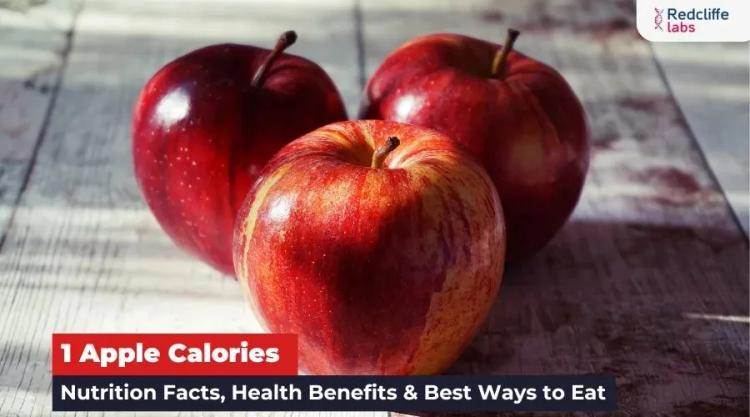Plum Fruit: Benefits, Pros and Cons, and Nutritional Value!

Medically Reviewed By
Dr. Geetanjali Gupta
Written By Sheena Mehta
on Sep 25, 2024
Last Edit Made By Sheena Mehta
on Jul 19, 2025

Today, in this blog, we will delve into the health benefits of plum fruit, its side effects, and its nutritional value.
What is a plum fruit?
A plum, also known as Aloo Bhukara, is extremely nutritious and offers a variety of health benefits. It is a stone fruit vibrant in color and tastes delicious. Scientifically, a plum fruit is known as Prunus domestica, and can be an excellent addition to your diet because it contains many vitamins and minerals. Besides, it is packed with antioxidants and fiber that may contribute to your overall well-being.
Plum color
A plum fruit is available in many colors, such as red, green, pink, purple, yellow, or orange skin. You can consume it fresh or dried (prunes), or in the form of juice to obtain its health benefits.
Several varieties of plums are available. The United States of America itself has more than 140 different varieties of plum fruits. The fruit is readily available in summer, from May to September. Dried plums are prunes available all year.
China was the first country to produce plums about thousands of years ago, followed by Japan, parts of Europe, and America.
Different types of plums are Kakadu plums, Damsons plums, Greengages, Myrobalan, Prune plums, and more.
Nutritional Value of Plum per 100 gram
Plum nutritional components include essential vitamins and minerals such as phosphorus, manganese, riboflavin, fluoride, and folate. They support muscle and nerve function. Vitamin C helps boost the immune system. Besides, antioxidants such as phenols and flavonoids help protect the body from damage caused by free radicals.
A 100 gram plum fruit contains:
| Energy | 46 kcal |
| Protein | 0.7 gram |
| Carbohydrate | 11.4 gram |
| Fat | 0.28 gram |
| Sugar | 9.92 gram |
| Fiber | 1.4 gram |
| Glutamic Acid | 0.035 gram |
| Aspartic Acid | 0.352 gram |
| Lysine | 0.016 gram |
| Isoleucine | 0.014 gram |
| Calcium | 6 mg |
| Iron | 0.17 mg |
| Potassium | 157 mg |
| Vitamin C | 9.5 mg |
| Vitamin B6 | 0.029 mg |
| Vitamin A | 345 IU |
5 Properties of a Plum Fruit
Plums are a great addition to the diet. Some of its properties include:
- Rich in antioxidants: Plums contain polyphenol content, which protects your cells from damage by free radicals.
- Anti-inflammatory Properties: They prevent inflammation in the body and thus protect from illnesses such as rheumatoid arthritis.
- Antibacterial properties: They help prevent foodborne diseases caused by bacterial microorganisms.
- Anti-cancer effect: Certain compounds in a plum fruit have been linked to resist cancer growth.
- Beneficial for bone health: Prunes (dried plums) are considered for bone health and can help people with osteoporosis.
Nutritional difference between Plums and Prunes (Dried Plums)
Both plums and prunes are high in nutrients, fiber, and antioxidants. However, there is a difference between their vitamin and mineral content, which is as follows:
| Plums | Prunes | ||
| Calories | 30 | Calories | 67 |
| Carbs | 8 g | Carbs | 18 g |
| Fiber | 1 g | Fiber | 2 g |
| Sugars | 7 g | Sugars | 11 g |
| Vitamin A | 5% of the RDI (recommended dietary intake) | Vitamin A | 4 % of the RDI (recommended dietary intake) |
| Vitamin C | 10% of RDI | Vitamin B2, B3, and B6 | 3% of the RDI |
| Vitamin K | 5% of the RDI | Vitamin K | 21% of the RDI |
| Potassium | 3% of the RDI | Potassium | 6% of the RDI |
| Copper | 2% of the RDI | Copper | 4% of the RDI |
| Manganese | 2% of the RDI | Manganese | 3% of the RDI |
7 Health Benefits of a Plum Fruit
It’s time to look at the health benefits of a plum fruit:
- They support digestive health: Eating plums, especially dried plums, can help prevent constipation, and thus improve digestion. A medium-sized plum of about 1 g can of dietary fiber helps regulate bowel movements and supports a healthy gut microbiome.
The natural sugar alcohol, sorbitol, has a laxative effect that softens stool and relieves constipation. Besides, isatin, an organic compound in plums, stimulates the muscles in the intestines, which further improves bowel function.
- Plums boost heart health: Eating plum in a moderate amount can have a protective effect on your heart health. A plum fruit contains potassium, which reduces the risk of high blood pressure, strokes, or heart disease. It is a heart-friendly fruit, which helps improve blood circulation and reduce inflammation. Besides, the soluble fiber in plums helps regulate cholesterol levels and supports healthy blood sugar levels.
- Aid in weight management: Plums are low in calories, and their high water and fiber content help keep you feeling full for longer periods. In addition, plums are low in fat, which makes them a satiating snack option for those who want to shed extra kilos. Consuming just 4-5 plums every day can bring a healthy change in their life.
- Do not cause a spike in blood sugar levels: The fiber content in a plum fruit helps slow down the rate at which the body absorbs the carbs after a meal, preventing blood sugar spikes. They produce adiponectin in the body that helps regulate your blood sugar levels. Plums have an anti-diabetic effect owing to their low glycemic index (GI) and certain compounds in plums may help increase insulin sensitivity, supporting the management of diabetes.
- Promote skin health: Plums are a powerhouse of nutrients that not only do wonders for your health but also for skin. The vitamin C and beta-carotene in a plum fruit promote healthy and glowing skin. Vitamin C increases collagen production, which keeps the skin firm and elastic. They can help fade dark spots and fight pigmentation. On the other hand, beta-carotene shields the skin from damage caused by UV rays. Plums are rich in vitamin E that helps ward off fine lines and wrinkles that make you look slightly older than your age.
- Boost immunity: The anthocyanins and vitamin C in plums help boost immunity and fight infections. Vitamin C supports the production of white blood cells and thus strengthens the immune system. Eating a plum fruit every day may enhance the body’s mechanisms and help ward off common colds, flu, and other infections. Furthermore, the anti-inflammatory properties in plums, including anthocyanins, are non-toxic and harmless, helping to reduce inflammation in the body and supporting overall immune health.
Also Read: https://redcliffelabs.com/myhealth/lifestyle/how-to-boost-immunity-during-winters/
- Improve cognitive function: The high flavonoid content in plums boosts brain health and reduces the risk of brain stroke. The polyphenols in plums help improve memory. It also reduces inflammation and makes communication better between brain cells.
It is believed that eating plums daily can protect the brain from age-related problems, including neurodegenerative diseases such as Alzhemier’s and Parkison’s disease. Thus, it promotes overall brain health.
How Can You Use Plums in Daily Life?
It is clear now that plums have many health benefits. From reducing the risk of cancer, diabetes, promoting heart health, and more. Incorporating this stone fruit into your diet can surely do wonders for your health.
5 Different Ways to Use Plums:
You can use a plum fruit in the following ways:
- Healthy Snack: Plums contain antioxidants and a high fiber content, making them a healthy snacking option in summers.
- Add to fruits or salads: Pair plums with red berries, peaches, and citrus fruits. Mixing them into fruit salads or mixed green salads will offer you a mix of sweet and tangy taste.
- Tangy Pickles: Raw plum pickles are an excellent addition to Indian meals for their great flavor and tanginess that wins everyone’s heart.
- Make desserts: You can make a dessert using plums, such as puddings, tarts, and cakes to add a burst of flavor and color.
- Nutritious Drink: Blend fresh plums into juices. It is an easy and quick way to make a refreshing plum drink.
4 Side Effects of Eating Plums
While a plum fruit offers many health benefits. However, studies reveal that it can cause certain side effects:
- Kidney stones: The oxalates in plums can cause kidney stones in some individuals.
- Spikes blood sugar levels: Excessive consumption of plums may raise the blood sugar levels. One needs to be careful if they have diabetes.
- Digestive Problems such as gas, bloating, and diarrhea can occur if you have irritable bowel syndrome.
- Allergies: Some allergies may develop after 5 to 15 minutes of eating a plum fruit. These include itching, swollen lips or throat, difficulty breathing, vomiting, or diarrhea.
Conclusion
Plums and prunes (dried plums) come in many varieties. Including them in your daily diet can offer a vast array of health benefits. These include promoting digestive health, supporting heart health, reducing the risk of chronic illnesses, and enhancing skin glow.
Whether you eat fresh or dried, plums help improve your overall well-being. They can be a wonderful addition to a balanced diet. However, moderation is the key to reaping all the benefits.
Frequently Asked Questions: Plum Fruit Benefits
1. Can I eat plums every day?
Yes. It is safe to eat about 2 to 3 plums every day as a part of your balanced meal.
2. What is the Indian name for prunes?
A fresh and dried prune is called Alu Bukhara in India.
3. What are the benefits of eating prunes?
The benefits of eating prunes include better heart and digestive health. They improve bone mineral density and more.
4. Can I eat plums with diabetes?
Yes, you can eat plums with diabetes. Eating one or two plums a day can help manage blood sugar levels.
5. Who should avoid eating plums?
Individuals who are prone to kidney stones and usually have high blood sugar levels must avoid eating plums.



